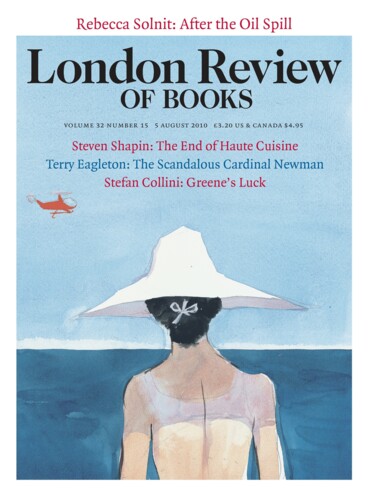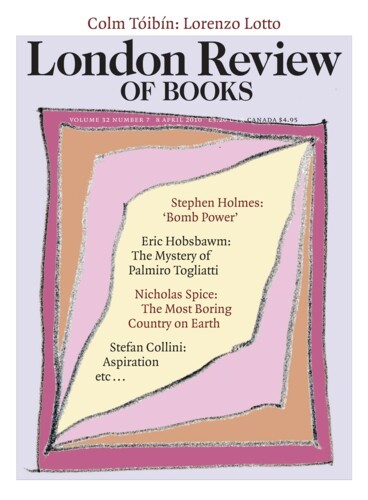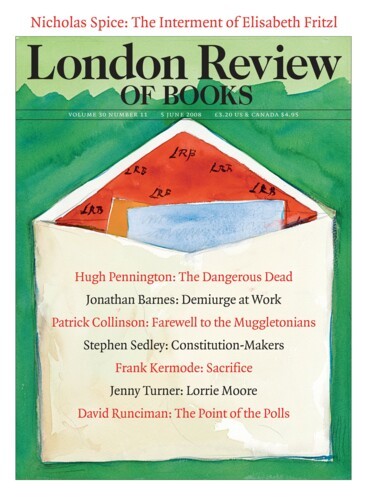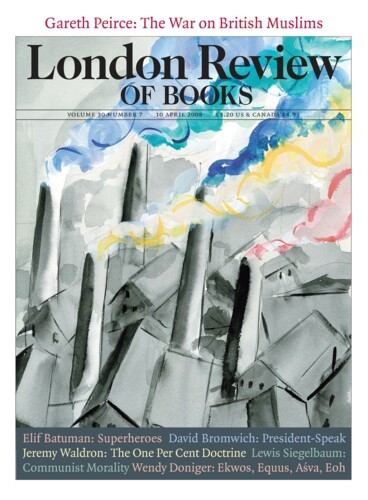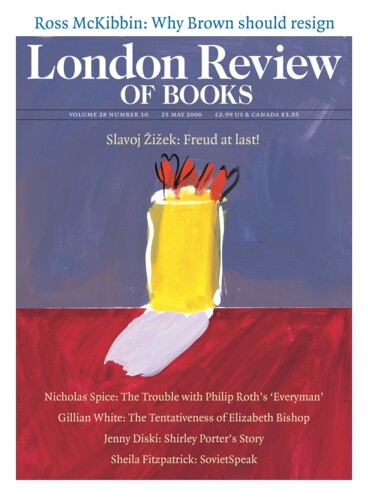Forged, Forger, Forget: Peter Carey
Nicholas Spice, 5 August 2010
Parrot and Olivier in America is the singular and surprising offspring of an unlikely coupling between two different novels: one, a fantasia on Tocqueville’s travels in America in 1831, the other a picaresque romance about an Englishman called John Larrit (known as Parrot for his talent as a mimic) who is suddenly and brutally torn from an idyllic childhood as the son of an itinerant printer in late 18th-century Devon and transported to Australia, where he grows up to become a topographical artist and engraver. The novel announces its hybrid nature in its title.
